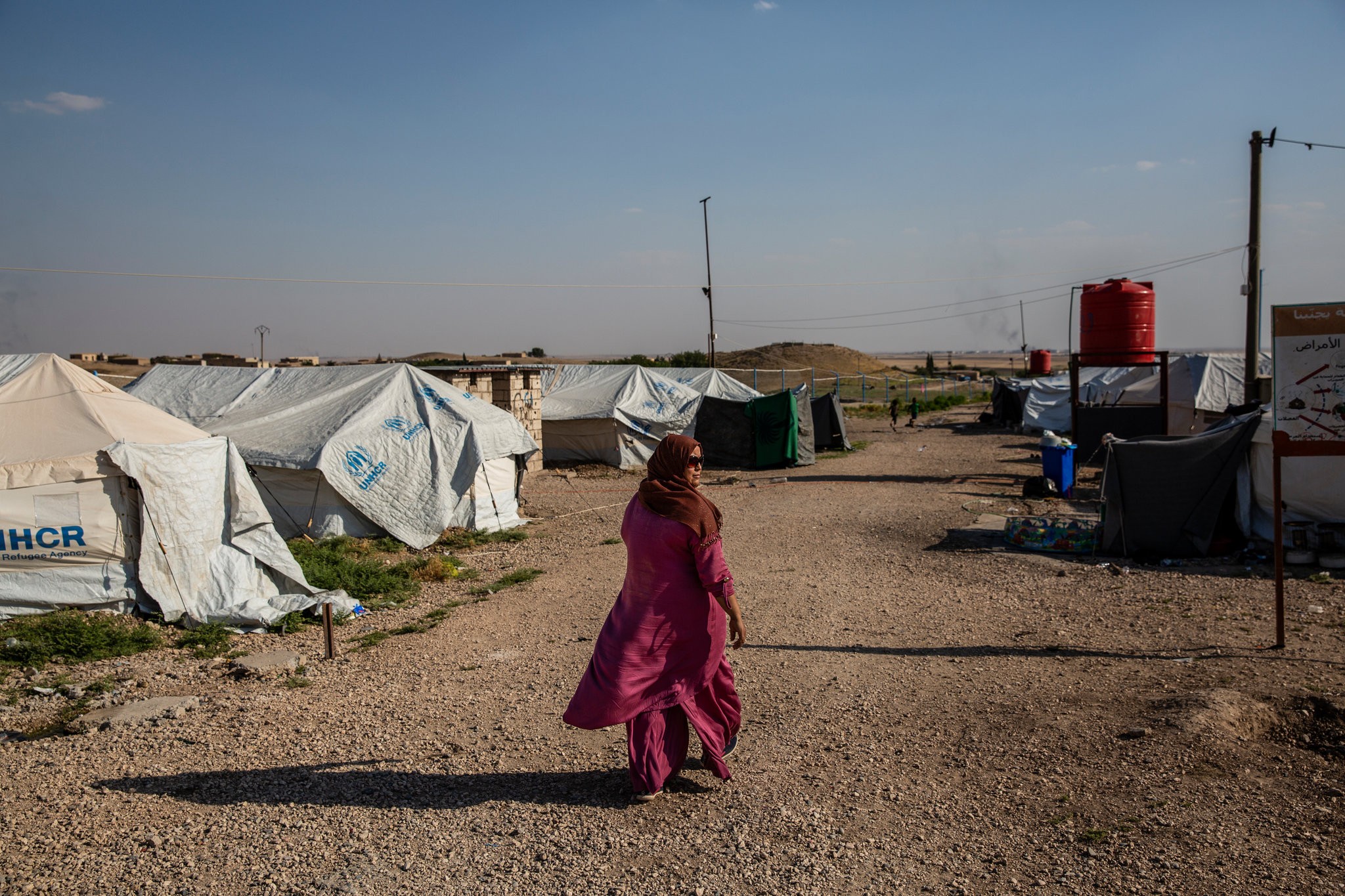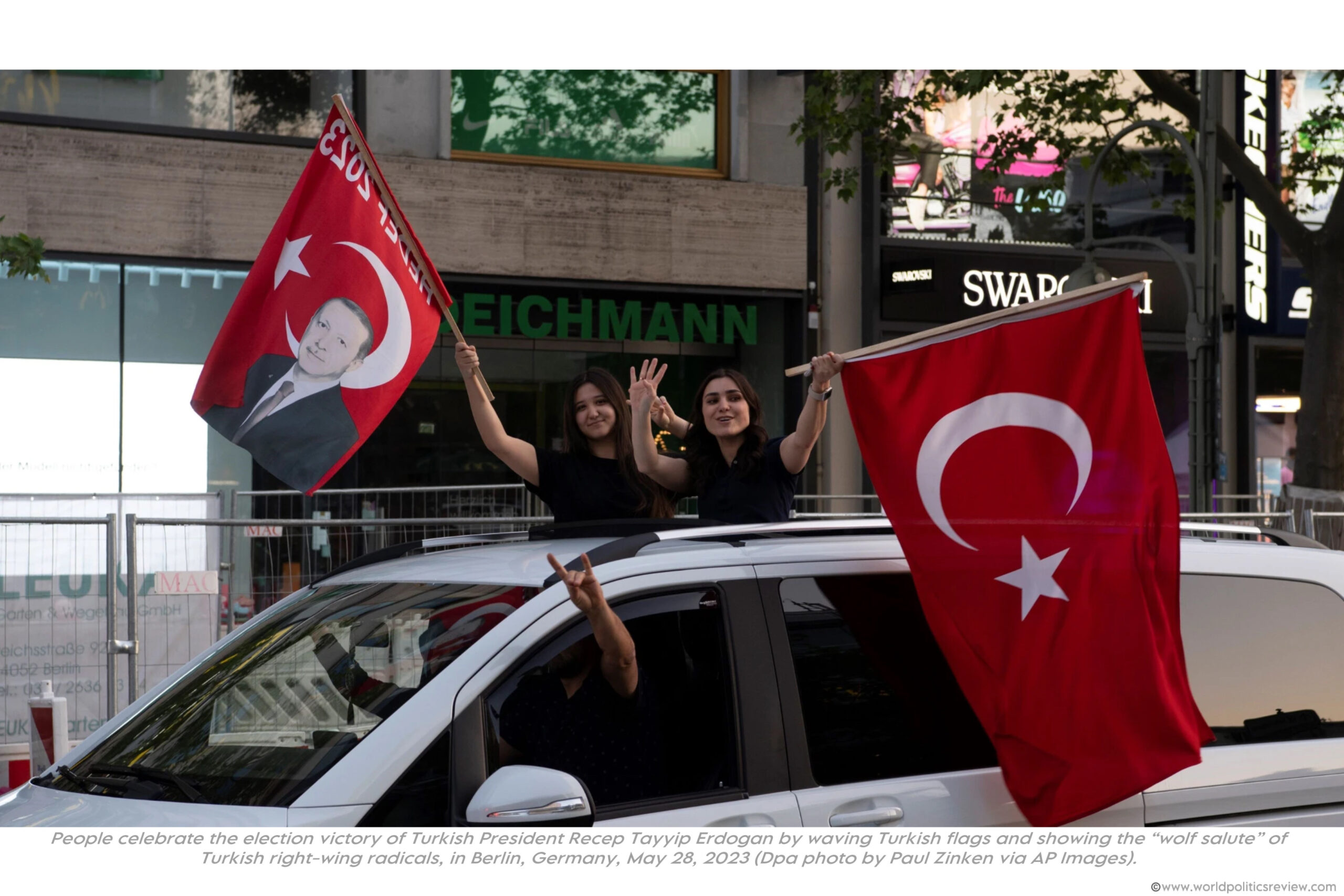More than 2,000 foreign women and children are being held in detention camps in Syria after moving with their husbands to join ISIS. After their husbands are captured or killed, many of their families also find themselves captured and “trapped in a legal and political limbo with no foreseeable way out”, as they are unwanted by both their home countries (who view them as an extremist threat) and those controlling territories in the now-stateless Syria. The lack of any internationally recognised authorities in the area makes the situation even more difficult.
Foreign governments like the US do provide some aid to local administrations, but it is not enough to make a significant impact, especially when the issue is so complex; the women and children in the camps have not been accused of any crimes and detaining seasoned jihadists and their families poses very real security threats, especially because it can be hard to determine the roles women may have performed in ISIS and how much of the ideology they still endorse. While courts exist to try Syrians for crimes committed under ISIS, they do not try foreigners.
By far the biggest concern are the more than 900 children who are being detained. They did not choose to join ISIS, and many suffer from health problems, lack any official citizenship, and have missed years of school as a result of the conflict.
Visiting one of the largest of these camps, Roj, journalists from the New York Times were allowed by Kurdish officials to interview Arab women but not to interview or photograph Western women in case it complicated negotiations with their home governments about their return. However, they spoke informally with some Western women, some of whom said their husbands had forced them to go to Syria and others saying their decision to go to the country had been a regrettable mistake.
A 24 year old German woman, who came to Syria with her German husband and three children, acknowledged that she had come to the country voluntarily, but said, “Of course we made mistakes, but anyone can make a mistake”. She said that life under ISIS had been worse than she was expected, but that escape was impossible once you had arrived.
Sarah Ibrahim, 31, and her two sons, originally from Morocco, are three of those being held. Speaking to the New York Times, Ibrahim voiced her frustration about the limbo she has found herself in; “You told us to leave ISIS and we left, but we are still considered ISIS. So who is responsible for us? Who will determine our fate?”
Abdul-Karim Omar, an official in the local Kurdish administration controlling Roj, where approximately 14000 foreigners from about 40 countries are being held, said, “We are working responsibly, but the international community is trying to flee from its responsibilities”. His administration has imprisoned more than 400 foreign fighters and his role within it is to persuade governments to take their citizens back, but this has not been successful, with many countries simply ignoring him. He said, “This is a ball of fire that everyone is trying to get rid of and threw to us”. In this case, the US is helping finance their detention to prevent prison breaks, but is not providing long-term resolutions to the problem of detaining so many families, and while international law would require their countries to take them in if they made their way home, the governments of these foreign detainees are not obliged to actively repatriate them.
Nadim Houry, director of the terrorism and counterterrorism programme for the group Human Rights Watch, dismissed the reasons governments have given for not taking their people back as excuses and a lack of political will. Such reasons given have been a lack of consular facilities or security concerns. He said, “Some of [the detainees] may have committed crimes, but most of them were probably housewives, so you can’t just lump them together with people who committed beheadings. What is troubling is that lots of them are children, and young children at that”.
Most Europeans want to go home even if they will stand trial, but few Arabs do as they fear they will be tortured or executed. In Iraq, many women who once lived with members of ISIS face swift trials and death sentences for their supposed support of the group.
As Western countries deal with the migrant crisis and the return of foreign fighters who have not been captured, in addition to dealing with the continued risk of extremism from ISIS, repatriating the families of those who have fought for ISIS presents another challenge, but none the less one that must be solved.
Sources
Hubbard, B. (2018) ‘Wives and Children of ISIS: Warehoused in Syria, Unwanted Back Home’. [online] 4 July. https://www.nytimes.com/2018/07/04/world/middleeast/islamic-state-families-syria.html. [Accessed 10 July 2018].
Khatib, L. et al. (2017) Western Policy Towards Syria: Applying Lessons Learned. Research Paper. London: Chatham House.






